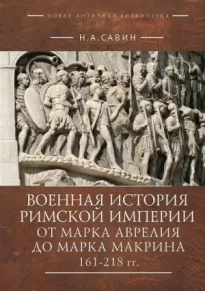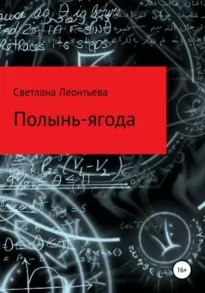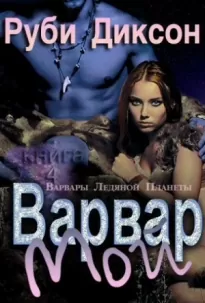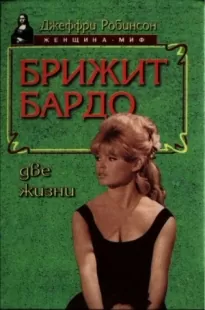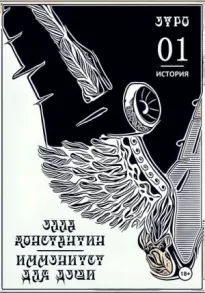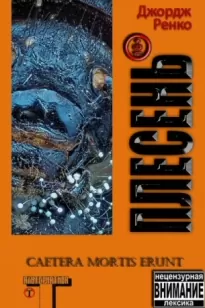Пелевин и несвобода. Поэтика, политика, метафизика
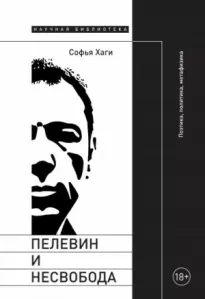
- Автор: Софья Хаги
- Жанр: Критика / Языкознание
- Дата выхода: 2023
Читать книгу "Пелевин и несвобода. Поэтика, политика, метафизика"
Khagi S. The Monstrous Aggregate of the Social: Toward Biopolitics in Victor Pelevin’s Work // Slavic and East European Journal. 2011. 55. № 3. P. 439–459.
Kierkegaard S. The Concept of Irony, with Continual Reference to Socrates: Notes of Schelling’s Berlin Lectures. Princeton, N. J.: Princeton University Press, 1989.
Kleinhenz C., LeMoine F. J. (eds.). Fearful Hope: Approaching the New Millennium. Madison: University of Wisconsin Press, 1999.
Knickerbocker D. Apocalypse, Utopia, and Dystopia: Old Paradigms Meet a New Millennium // Extrapolation. 2010. 51. № 3. P. 345–357.
Knox D. Ironia: Medieval and Renaissance Ideas on Irony. Leiden: Brill Academic, 1989.
Kristeva J. Contre la dépression nationale. Paris: Textuel, 1998.
Kristeva J. Europhilia, Europhobia // French Theory in America / Ed. S. Lotringer, S. Cohen. New York: Routledge, 2001. P. 321–332.
Kristeva J. Sens et non-sens de la révolte. Paris: Fayard, 1996.
Kumar K. Utopia and Anti-Utopia in Modern Times. Oxford: Blackwell, 1987.
Kuritsyn V. Postmodernism: The New Primitive Culture // Russian Studies in Literature. 1993. 30. № 1. P. 52–66.
Laird S. (ed.). Voices of Russian Literature: Interviews with Ten Contemporary Writers. Oxford: Oxford University Press, 1999.
Lalo A. New Trends in Russian Intellectual Anti-Americanism: The Strange Case of Viktor Pelevin’s Novel S. N. U. F. F. // Slavonica. 2014. 20. № 1. P. 34–44.
Langen T. Evgeny Zamyatin’s ‘The Cave’ // Philosophy and Literature. 2005. 29. № 1. P. 209–217.
Lanz K. The Dostoevsky Encyclopedia. Westport, Conn.: Greenwood, 2004.
Le Guin U. K. The Disposessed: An Ambiguous Utopia. New York: Harper Collins, 1974.
Leatherbarrow W. J. Apocalyptic Imagery in Dostoevskij’s The Idiot and The Devils // Shapes of Apocalypse. Arts and Philosophy in Slavic Thought, edited by Andrea Oppo. Boston: Academic Studies, 2013. P. 122–133.
Lem S. Mortal Engines / Trans. M. Kandel. Boston: Mariner, 1992.
Lilly I., Mondry H. (eds.). Russian Literature in Transition. Nottingham: Astra, 1999.
Lipovetsky M. Charms of the Cynical Reason: The Trickster’s Transformations in Soviet and Post-Soviet Culture. Boston: Academic Studies, 2010.
Lipovetsky M., Etkind A. The Salamander’s Return: The Soviet Catastrophe and the Post-Soviet Novel // Russian Studies in Literature. 2010. 46. № 4. P. 6–48.
Livers K. Bugs in the Body Politic: The Search for Self in Victor Pelevin’s The Life of Insects // Slavic and East European Journal. 2002. 46. № 1. P. 1–28.
Livers K. Conspiracy Culture: Post-Soviet Paranoia and the Russian Imagination. Toronto: University of Toronto Press, 2020.
Livers K. Is There Humanity in Posthumanity? Viktor Pelevin’s S. N. U. F. F. // Slavic and East European Journal. 2018. 62. № 3. P. 503–522.
Livers K. The Tower or the Labyrinth: Conspiracy, Occult, and Empire-Nostalgia in the Work of Viktor Pelevin and Aleksandr Prokhanov // The Russian Review. 2010. 69. № 3. P. 477–503.
Lotringer S., Cohen S. (eds.). French Theory in America. New York: Routledge: 2001.
Lunde I., Roesen T. (eds.). Landslide of the Norm: Language Culture in Post-Soviet Russia. Bergen: University of Bergen Press, 2006.
Lyotard J.-F. The Inhuman: Reflections on Time. Stanford, Calif.: Stanford University Press, 1991.
Lyotard J.-F. The Postmodern Condition: A Report on Knowledge. Minneapolis: University of Minnesota Press, 1984.
Marcuse H. A Critique of Pure Tolerance / Ed. R. P. Wolff, B. Moore, Jr., H. Marcuse. Boston: Beacon, 1969.
Marcuse H. One-Dimensional Man: Studies in the Ideology of Advanced Industrial Society. Boston: Beacon, 1968.
Marcuse H. Repressive Tolerance // A Critique of Pure Tolerance / Ed. R. P. Wolff, B. Moore, Jr., H. Marcuse. Boston: Beacon, 1969. P. 95–137.
Marsh R. Literature, History, and Identity in Post-Soviet Russia, 1991–2006. Oxford: Peter Lang, 2006.
McCall A. Dream Angus. London: Canongate, 2006.
McCausland G. Viktor Olegovich Pelevin // Dictionary of Literary Biography: Russian Writers since 1980 / Ed. M. Balina, M. Lipovetsky. Detroit, Mich.: Gale Research, 2003. P. 208–219.
McHale B. Constructing Postmodernism. New York: Routledge, 1992.
Menzel B. Russian Science and Fantasy Literature // Reading for Entertainment in Contemporary Russia: Post-Soviet Popular Literature in Historical Perspective / Ed. B. Menzel, S. Lovell. Munich: Sagner, 2005. P. 117–150.
Menzel B., Lovell S. (eds.). Reading for Entertainment in Contemporary Russia: Post-Soviet Popular Literature in Historical Perspective. Munich: Sagner, 2005.
Miller R. F. Dostoevsky and «The Idiot»: Author, Narrator, and Reader. Cambridge, Mass.: Harvard University Press, 1981.
Milne L. (ed.). Reflective Laughter: Aspects of Humor in Russian Culture. London: Anthem, 2004.
Milne L. Jokers, Rogues, and Innocents: Types of Comic Hero and Author from Bulgakov to Pelevin // Reflective Laughter: Aspects of Humor in Russian Culture / Ed. L. Milne. London: Anthem, 2004. P. 85–96.
Milton J. Paradise Lost. New York: Harper Collins, 2014.
More T. Utopia / Ed. G. M. Logan, trans. R. M. Adams. New York: W. W. Norton, 2010.
Morson G. S. Narrative and Freedom: The Shadows of Time. New Haven, Conn.: Yale University Press, 1996.
Morson G. S., Emerson C. Mikhail Bakhtin: Creation of a Prosaics. Stanford, Calif.: Stanford University Press, 1990.
Mozur J. Victor Pelevin: Post-Sovism, Buddhism & Pulp Fiction // World Literature Today. 2002. P. 59–67.
Muecke D. C. Irony and the Ironic. London: Routledge, 1982.
Nabokov V. Lolita. New York: Vintage, 1989.
Nabokov V. Pnin. Portsmouth, N. H.: Doubleday, 1957.
Nakhimovsky A. S. Soviet Anti-Utopias in the Works of Arkady and Boris Strugatsky // Alexander Lipson: In Memoriam / Ed. C. Gribble et al. Columbus, Ohio: Slavica, 1994. P. 143–153.
Nietzsche F. The Gay Science: With a Prelude in Rhymes and an Appendix of Songs / Ed. B. Williams, trans. J. Nauckhoff, poems trans. A. del Caro. Cambridge: Cambridge University Press, 2001.
Nietzsche F. Thus Spoke Zarathustra: A Book of All and None / Trans. W. Kaufmann. New York: Penguin, 1978.
Niven L. All the Myriad Ways. New York: Random House, 1971.
Noordenbos B. Breaking into a New Era? A Cultural-Semiotic Reading of Viktor Pelevin // Russian Literature. 2008. 64. № 1. P. 85–107.
Noordenbos B. Shocking Histories and Missing Memories: Trauma in Viktor Pelevin’s Čapaev i Pustota // Russian Literature. 2016. 85. № 1. P. 43–68.
O’Neil C., Boudreau N., Krive S. (eds.). Poetics, Self, Place: Essays in Honor of Anna Lisa Crone. Bloomington: Indiana University Press, 2007.
Oppo A. (ed.). Shapes of Apocalypse: Arts and Philosophy in Slavic Thought. Boston: Academic Studies, 2013.
Oppo A. Introduction // Shapes of Apocalypse: Arts and Philosophy in Slavic Thought / Ed. A. Oppo. Boston: Academic Studies, 2013. P. 20–33.
Oppo A. Preface // Shapes of Apocalypse: Arts and Philosophy in Slavic Thought / Ed. A. Oppo. Boston: Academic Studies, 2013. P. 13–18.
Ortega y Gasset J. The Revolt of the Masses. Notre Dame, Ind.: University of Notre Dame Press, 1985.
Orwell G. 1984: A Novel. New York: Signet Classic, 1950.
Orwell G. Why I Write. New York: Penguin Books, 2014.
Palahniuk C. Fight Club: A Novel. New York: Henry Holt, 1996.
Parts L. Degradation of the Word, or the Adventures of an Intelligent in Viktor Pelevin’s Generation «П» // Canadian Slavonic Papers. 2004. 46. № 3–4. P. 435–449.
Paulsen M. Criticizing Pelevin’s Language: The Language Question in the Reception of Victor Pelevin’s Novel Generation ‘П’ // Landslide of the Norm: Language Culture in Post-Soviet Russia / Ed. I. Lunde, T. Roesen. Bergen: University of Bergen Press, 2006. P. 143–158.
Pavlov E. Judging Emptiness: Reflections on the Post-Soviet Aesthetics and Ethics of Viktor Pelevin’s Chapaev i Pustota // Russian Literature in Transition / Ed. I. K. Lilly, H. Mondry. Nottingham: Astra, 1999. P. 89–104.
Pavlov I. Conditioned Reflexes (Classics of Psychology). Mineola, N. Y.: Dover, 2013.
Pelevin V. The Helmet of Horror: The Myth of Theseus and the Minotaur. London: Canongate, 2007.
Piper H. B. The Complete Paratime. New York: Ace, 2001.
Plato. The Allegory of the Cave / Trans. B. Jowett. Los Angeles: Enhanced Media Publishing, 2017.
Plato. The Republic / Trans. G. M. A. Grube, revised by C. D. C. Reeve. Indianapolis: Hackett Publishing Company, 1992.
Poe E. A. The Complete Poetry of Edgar Allan Poe. Dachau: Musaicum Books, OK Publishing, 2017.
Potts S. The Second Marxian Invasion: The Fiction of the Strugatsky Brothers. San Bernardino, Calif.: Borgo, 1991.
Pynchon T. The Crying of Lot 49. Philadelphia: J. B. Lippincott, 1966.
Pynchon T. Vineland. Boston: Little, Brown, 1990.
Quinby L. Anti-Apocalypse: Exercises in Genealogical Criticism. Minneapolis: University of Minnesota Press, 1994.
Rorty R. Contingency, Irony, and Solidarity. Cambridge: Cambridge University Press, 1989.
Rosenfeld G. Why Do We Ask ‘What If?’ Reflections on the Function of Alternate History // History and Theory. 2002. 41. № 4. P. 90–103.
Rosenshield G. The Laws of Nature: Autonomy and ‘Unity’ in Dostoevskii’s Idiot // Slavic Review. 1991. 50. № 4. P. 879–889.
Rosso S. A Correspondence with Umberto Eco // Boundary. 1983. 212. № 1. P. 1–13.
Roth P. The Plot Against America. New York: Vintage, 2005.
Rothenberg M. A., Žižek S. (eds.). Perversion and the Social Relation. Durham, N. C.: Duke University Press, 2003.
Rozanov V. Dostoevsky and the Legend of the Grand Inquisitor. Trans. S. E. Roberts. Ithaca, N. Y.: Cornell University Press, 1972.
Rubinshtein L. Complete Catalogue of Comedic Novelties. New York: Ugly Duckling Presse, 2014.
Rushdie S. The Satanic Verses: A Novel. New York: Random House, 2008.
Ryan K., Scherr B. P. (eds.). Twentieth-Century Russian Literature: Selected Papers from the Fifth World Congress of Central and East European Studies, Warsaw, 1995. New York: Palgrave Macmillan, 2000.
Rydel C. (ed.). Russian Prose Writers after World War II. Detroit, Mich.: Gale Research, 2004.
Salkind N. An Introduction to Theories of Human Development. New York: SAGE, 2004.
Scanlan J. Dostoevsky the Thinker. Ithaca, N. Y.: Cornell University Press, 2011.
Schlegel F. Lucinde and the Fragments / Trans. and introduction by P. Firchow. Minneapolis: University of Minnesota Press, 1971.
Searle J. Minds, Brain, and Science. Cambridge, Mass.: Harvard University Press, 2003.
Shakespeare W. The Tempest. New York: Simon and Schuster, 2004.
Shannon C. E., McCarthy J. (eds.). Automata Studies (AM-34). Vol. 34 (Annals of Mathematics Studies). Princeton, N. J.: Princeton University Press, 1956.
Shteyngart G. Absurdistan. New York: Random House, 2007.
Simon E. The Strugatskys in Political Context // Science Fiction Studies. 2004. 31. № 3. P. 378–406.
Skinner B. F. Contingencies of Reinforcement: A Theoretical Analysis. New York: B. F. Skinner Foundation, 1969.
Sloterdijk P. Critique of Cynical Reason // Theory and History of Literature / Ed. W. Godzich, J. Schulte-Sasse. Vol. 40. Minneapolis: University of Minnesota Press, 1988.
Smith A. Arkady Natanovich Strugatsky and Boris Natanovich Strugatsky // Russian Prose Writers after World War II / Ed. C. Rydel. Detroit, Mich.: Gale Research, 2004. P. 356–365.
Smith A. The Wealth of Nations. New York: Bantam Classics, 2003.
Spengler O. The Decline of the West. New York: Vintage, 2006.
Steinberg M. Petersburg Fin de Siècle. New Haven, Conn.: Yale University Press, 2011.
Steiner G. After Babel: Aspects of Language and Translation. Oxford: Oxford University Press, 1988.
Steiner G. Language and Silence: Essays on Language, Literature, and the Inhuman. New York: Open Road Media, 1974.
Stross C. A Merchant Princes Omnibus. New York: Tor Books, 2004.
Suslov M. Of Planets and Trenches: Imperial Science Fiction in Contemporary Russia // The Russian Review. 2016. № 75. P. 562–578.
Suslov M., Bodin P.-A. (eds.). Geo-Political Identity Making in Post-Soviet Russian Speculative Fiction. London: I. B. Tauris, 2019.
Suvin D. Criticism of the Strugatsky Brothers’ Work // Canadian-American Slavic Studies. 1972. № 2. P. 286–307.
Suvin D. Metamorphoses of Science Fiction. New Haven, Conn.: Yale University Press, 1979.
Suvin D. The Literary Opus of the Strugatsky Brothers // Canadian-American Slavic Studies. 1974. № 3. P. 454–463.
Swift J. Gulliver’s Travels. Mineola, N. Y.: Dover, 1996.
Todorov T. The Fantastic: A Structural Approach to a Literary Genre. Trans. R. Howard, introduction by R. Scholes. Ithaca, N. Y.: Cornell University Press, 1975.
Tolkien J. R. R. The Lord of the Rings. Boston: Mariner Books, 2012.
Turing A. The Essential Turing: Seminal Writings in Computing, Logic, Philosophy, Artificial Intelligence, and Artificial Life plus The Secrets of Enigma / Ed. B. J. Copeland. Oxford: Oxford University Press, 2004.
Turtledove H. Crosstime Traffic series. New York: Tor Books, 2003–2008.
Vaingurt J. Freedom and the Reality of Others in Chapaev and the Void // Slavic and East European Journal. 2018. 62. № 3. P. 466–482.
Vaingurt J., McQuillen C. (eds.). The Human Reimagined: Posthumanism in Late Soviet and Post-Soviet Russia. Boston: Academic Studies, 2018.
Vonnegut K. Slaughterhouse-Five, or the Children’s Crusade: A Duty Dance with Death. New York: Delacorte, 1969.
Wachtel A. An Obsession with History: Russian Writers Confront the Past. Stanford, Calif.: Stanford University Press, 1994.
Wells H. G. Men Like Gods. London: Cassell, 1923.
Wells H. G. The Time Machine: 100th Anniversary Collection. New York: Seawolf, 2018.
Wolfe C. Animal Rites: American Culture, the Discourse of Species, and Posthumanist Theory. Chicago: University of Chicago Press, 2003.
Wolfe T. The Bonfire of the Vanities. New York: Picador, 2008.
Wordsworth W. Prose Writings. Selected, edited, and introduced by W. Knight. London: Forgotten Books, 2018.
Yablokov I. Fortress Russia: Conspiracy Theories in the Post-Soviet World. Medford, Mass.: Polity, 2018.
Yurchak A. Everything Was Forever, Until It Was No More: The Last Soviet Generation. Princeton, N. J.: Princeton University Press, 2006.
Zenkovsky S. Medieval Russia’s Epics, Chronicles, and Tales. Nampa: Meridian, 1974.
Žižek S. The Ambiguity of the Masochist Social Link // Perversion and the Social Relation / Ed. M. A. Rothenberg, S. Žižek. Durham, N. C.: Duke University Press, 2003. P. 112–125.
Žižek S. The Sublime Object of Ideology (Phronesis). London: Verso, 1989.
Žižek S. Welcome to the Desert of the Real: Five Essays on September 11 and Related Dates. New York: Verso, 2002.
